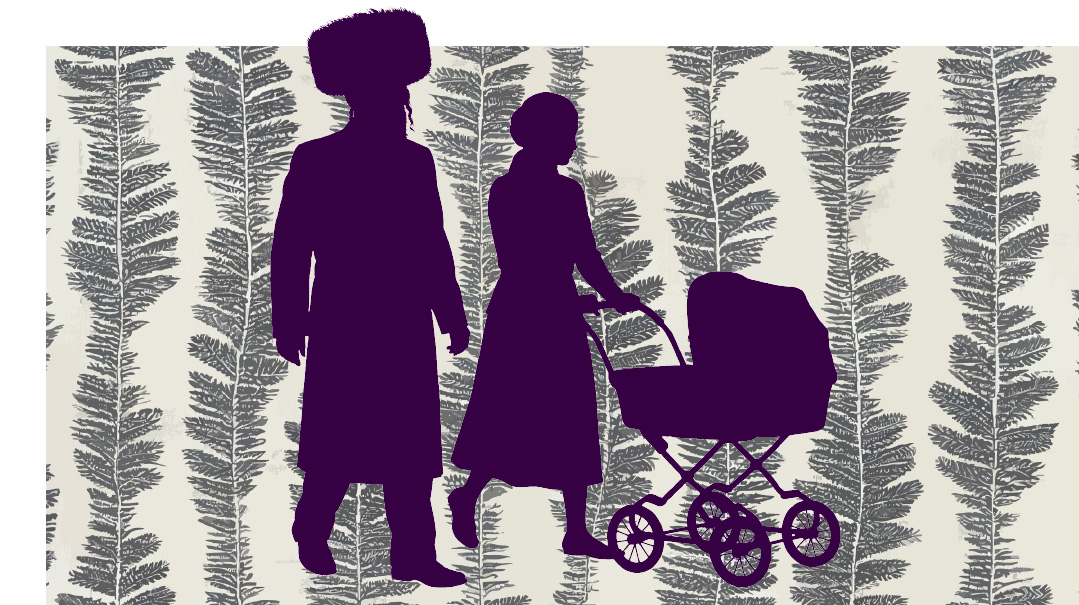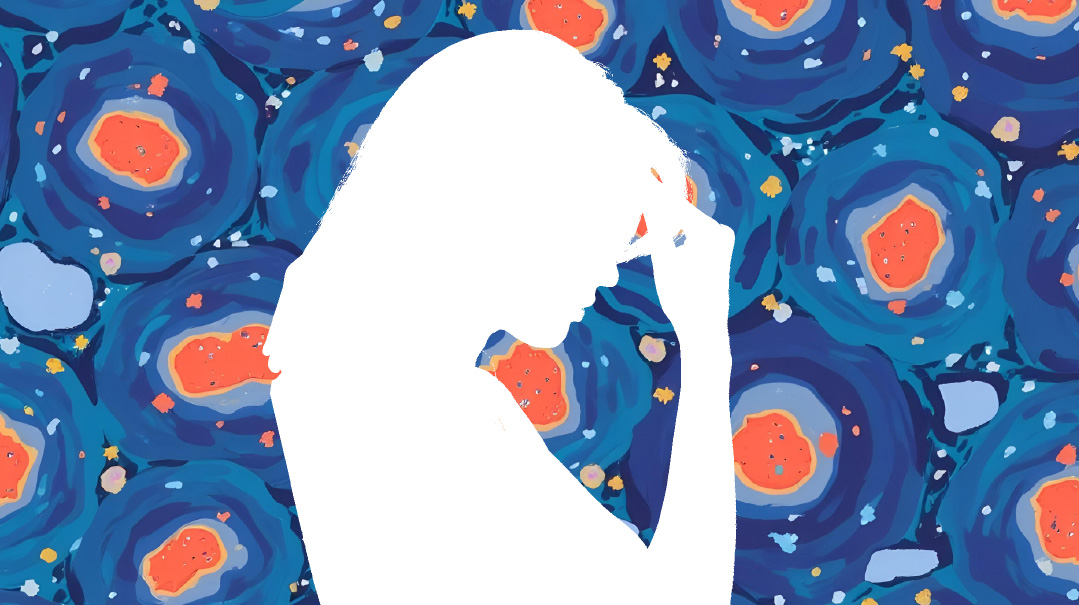Secondary Infertility
| July 11, 2023“How nice!” they reply with forced enthusiasm, and you can see the wheels turning in their brain, doing mental math

Being stuck between two diametrically opposed worlds, yet not really belonging to either, is a strange and lonely place.
You can’t claim membership in the infertility club, not with your two beautiful, smart, and fiercely loved children. You have been blessed with the incredible gift of motherhood, with all the bleary-eyed nights and sticky kisses that come with it. You spend your days kissing boo-boos and wiping spills, reading stories, and playing make-believe. You cherish the impromptu cards your children color for you, as you kvell over their obviously genius intellect and professional drawing skills. You savor every precious giggle, and your heart soars through each milestone.
Yet you don’t feel like a full-fledged member of the motherhood world. A knife twists in your heart every time someone asks how many kids you have. The knife twists deeper when your own child asks why so many families in the neighborhood have a new baby, yet yours doesn’t. And deeper still when your two young children sit down with a Tehillim they can hardly read, to beg Hashem for a sibling.
At the park, in the supermarket, people see you and ask innocently, “So how old are your kids?”
You wince internally and blurt out quickly, “She’s eight and he’s four.”
Then comes the inevitable follow-up: “So… he’s your youngest?”
You nod and wince again, because you know what’s coming next.
“How nice!” they reply with forced enthusiasm, and you can see the wheels turning in their brain, doing mental math, processing the four-year age gap, and trying to figure out what your problem is.
People ask you to be kvatter, and at first, you do it willingly. But after a while, your husband turns down the honor because he’s a private person and he doesn’t want your situation to be more public than it already is, with people looking and whispering about the couple who only have two kids, nebach.
You notice with a pang which families have grown bigger than yours in just a few short years, while you’ve been married for more than a decade. And then you feel guilty for these bursts of jealousy when you have so much brachah in your life already.
Baruch Hashem, you’ve been blessed with a wonderful husband and a strong marriage. When you feel down, your husband picks you up; when he is down, you’re there for him. You constantly remind yourself that Hashem, in His infinite kindness, blessed you with both a son and a daughter, that your children are happy, smart, and well-adjusted. You look at friends who have been blessed with big families, and you see that they’re also struggling with nisyonos, ones that you can’t imagine dealing with. You firmly believe that everyone has their own pekel in life — just that yours happens to be an obvious one.
You turn to fertility organizations because they’re wonderful at giving guidance and advice, but truth is, there isn’t much public support for secondary infertility. You can’t join any of the chizuk getaways for couples facing infertility — after all, you don’t really belong there. And besides, they don’t have day camps for kids during those inspiring and fortifying weekends.
Monetary support is usually reserved for primary infertility — and rightfully so. But you sometimes feel left out because there’s no one to help you cover the hefty (and sometimes astronomical) fees. The less-invasive treatments cost around $1,000 per cycle, and the more invasive ones $20,000 plus.
Every single fertility office you visit is somehow right next door to an ob-gyn office, so as you walk to your appointment, you pass women who are expecting. Your heart twists again, the emptiness within you even more glaring.
Some treatment plans last for several months in a row. You ask for time off from work (again), you arrange for child care (again). Your mornings are swallowed up and your husband misses seder to be with you. Some weeks, for a few days in a row, you go in daily to be monitored.
Your temper flares because the medication you’re taking wreaks havoc on your hormones, and you feel white-hot guilt after snapping at the precious gifts Hashem did give you. You switch to a different drug and it causes your hands to swell so badly that you can’t use them at all. Months later, long after you’ve stopped taking the medication, you can still feel the stiffness in your joints as you perform certain motions.
Your inner drill sergeant doesn’t allow you the luxury of complaining or wallowing in self-pity. After all, look at all that Hashem has given you! Don’t you know how many couples would do anything to be in your shoes?
Each cycle comes with a thrill of anticipation — maybe this time will work, maybe this time next month I’ll be expecting. You try not to get your hopes up too high because then the failure feels that much more devastating.
But even though you’ve prepared yourself, you’re still shattered when the treatment plan fails.
Yet hope springs eternal. You hear about a top doctor, with a new kind of treatment, and you work tirelessly to get an appointment. Finally, you get one — in six months. You’re in a state of limbo, on hold, stuck waiting to see if maybe this time your prayers will be answered.
As you gaze at your perfect children now, with a heart full of thanks but laced with yearning, playing with Magna-Tiles on the floor while waiting anxiously for a call back from the fertility center, hoping for positive results, but not hoping too much, you realize that while being stuck between two worlds can be isolating, it is the place you are meant to be, and for that you are grateful.
You probably never realized that:
secondary infertility is just as common as primary infertility. According to the Cleveland Clinic, it affects around 11 percent of couples in the United States.
Advice I’d give to women struggling with secondary infertility:
Even though you’re trying for more, don’t let it get in the way of treasuring and giving your very best to the precious neshamos Hashem has already given you.
What this nisayon has taught me:
How to be a more empathetic and sensitive person. You never know what’s going on in someone else’s life or what silent struggle they’re dealing with.
The nicest thing someone did for me:
One Erev Yom Tov, an employee at a local organization called me because she found out I was trying to get an appointment with a top doctor, and she wanted to help. It made me feel so good that someone I barely knew was taking time on a very busy day to help me with my case. Thanks to her, I secured the appointment.
(Originally featured in Family First, Issue 851)
Oops! We could not locate your form.







